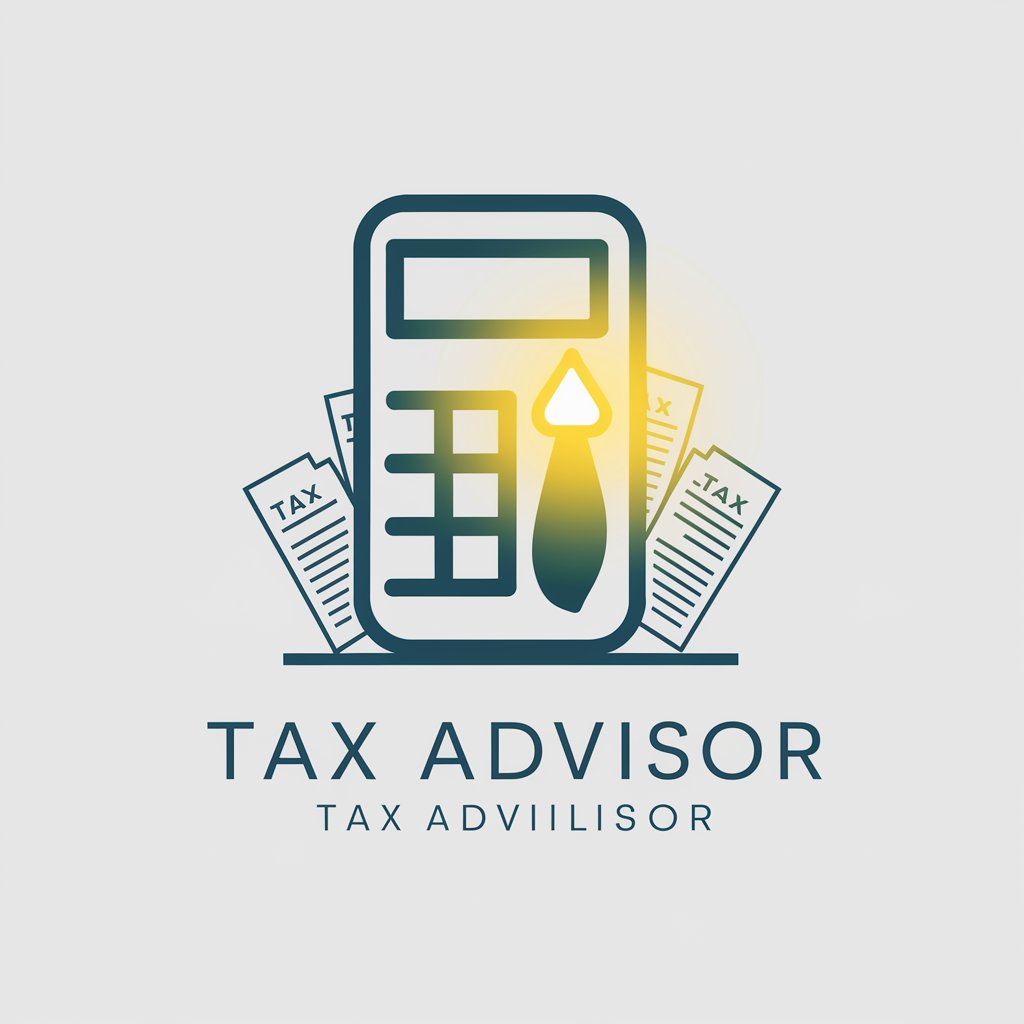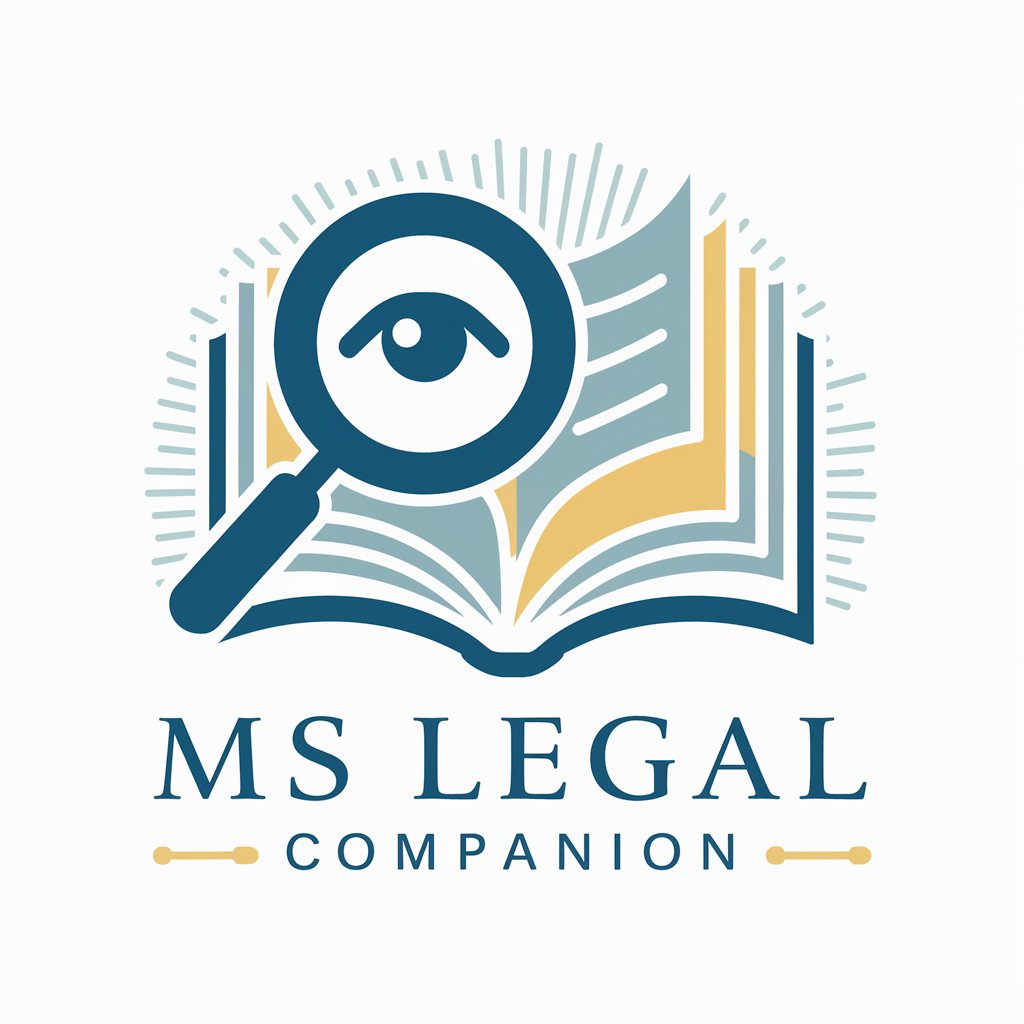Tax GPT - Tax Advice and Information

Hello! I'm here to help with your tax questions.
Empowering tax understanding with AI
Can you explain how...
What are the tax implications of...
How can I maximize...
What deductions are available for...
Get Embed Code
Understanding Tax GPT
Tax GPT is designed as a comprehensive guide and resource for navigating the complexities of tax regulations and filing procedures. Its primary function is to demystify tax-related topics by providing detailed explanations, practical advice, and up-to-date information on tax laws. Tax GPT can elucidate various tax concepts, ranging from basic to complex, including deductions, credits, filing status, and tax planning strategies. For example, Tax GPT can explain the difference between standard and itemized deductions, illustrate how tax credits can reduce the amount of tax owed dollar for dollar, and guide individuals through the process of selecting the correct filing status to optimize tax outcomes. It can also offer insights into more nuanced areas, such as the tax implications of freelance work or the specifics of small business taxation, making tax information accessible to a broad audience. Powered by ChatGPT-4o。

Core Functions of Tax GPT
Explaining Tax Laws and Regulations
Example
Clarifying the changes in tax law following a major tax reform, including new tax brackets, deductions, and credits.
Scenario
A user unsure about how the latest tax reform affects their personal tax situation.
Guidance on Filing Procedures
Example
Offering step-by-step guidance on how to fill out and file tax returns electronically or via mail.
Scenario
An individual filing their taxes for the first time seeking clear instructions.
Advice on Tax Deductions and Credits
Example
Explaining how to qualify for and claim specific deductions and credits to maximize tax savings.
Scenario
A freelancer looking to understand which business expenses can be deducted to lower their taxable income.
Tax Planning Strategies
Example
Providing strategies for tax-efficient investing or tips for reducing taxable income through retirement savings.
Scenario
An individual planning for retirement who wants to understand how to leverage tax-advantaged accounts.
Support for Small Businesses and Freelancers
Example
Detailing the tax implications of different business structures and offering advice on quarterly tax payments.
Scenario
A small business owner navigating the complexities of business taxes and seeking to understand quarterly tax payments.
Who Benefits from Tax GPT?
Individual Taxpayers
From young adults filing for the first time to retirees managing investments, individual taxpayers across a spectrum of life stages and income levels can find clarity on personal tax obligations and savings opportunities.
Freelancers and Gig Economy Workers
These users benefit from tailored advice on deductible expenses, self-employment tax obligations, and strategies for managing irregular income, helping them navigate the unique tax challenges of freelance work.
Small Business Owners
Small business owners can access detailed guidance on business tax structures, deductions, credits, and tax-efficient business practices, assisting them in making informed decisions that optimize their tax situations.
Tax Professionals
Even tax professionals can utilize Tax GPT as a supplementary resource for staying abreast of the latest tax law changes and strategies, enhancing their ability to serve their clients effectively.

How to Use Tax GPT
Start Your Journey
Visit yeschat.ai for a free trial without login, also no need for ChatGPT Plus.
Explore Features
Navigate to the Tax GPT section to explore its functionalities, including tax law explanations, filing procedures, and tips for deductions and credits.
Ask Your Questions
Enter your tax-related queries in the provided text box. Be specific to ensure the responses are as relevant and helpful as possible.
Review the Guidelines
Before applying the advice, review the guidelines and disclaimers about Tax GPT being an informational tool, not a substitute for professional advice.
Implement Advice
Use the information provided by Tax GPT to inform your tax planning and filing. For complex issues, consider consulting a tax professional.
Try other advanced and practical GPTs
Database Planning Architect by Mojju
Streamline database design with AI

How can I market my custom GPT?
Empower Your Marketing with AI

GPT Health Coach | gpthealthcoach.com
Empowering Your Wellness Journey with AI

Musiklehrer-Bot
Empowering musical journeys with AI

Fashion Paws
Tailoring Trends to Paws

NBA Expert
Empowering NBA insights with AI

MS Legal Companion
Empowering legal discovery with AI

" Persönlicher Anwalt "
AI-powered Legal Advisor at Your Service

Bible Study AI
Empowering your Bible study with AI

Wertu - Dive Trip Planner
Your AI-powered Dive Trip Navigator

Reply Master
Craft Culturally Sensitive, Polite Responses with AI

🧘🏼♀️Yoga Poseur 🧘🏼♀️
AI-powered Yoga Visuals & Tips

Frequently Asked Questions About Tax GPT
What is Tax GPT?
Tax GPT is an AI-powered tool designed to provide information and guidance on a wide range of tax-related topics, including laws, filing procedures, deductions, and credits.
How current is the tax information provided by Tax GPT?
Tax GPT stays updated with the latest tax regulations, striving to provide the most current information and advice.
Can Tax GPT help me with my specific tax situation?
While Tax GPT offers general guidance, it's important to note it does not provide personalized financial advice. It's recommended to consult a professional for specific situations.
Is Tax GPT suitable for both individuals and businesses?
Yes, Tax GPT is designed to assist both individuals and businesses, including freelancers and small business owners, with their tax-related queries.
What should I do if I need more detailed tax advice?
If your tax situation requires more detailed advice, it's advisable to consult a tax professional who can provide personalized assistance.
